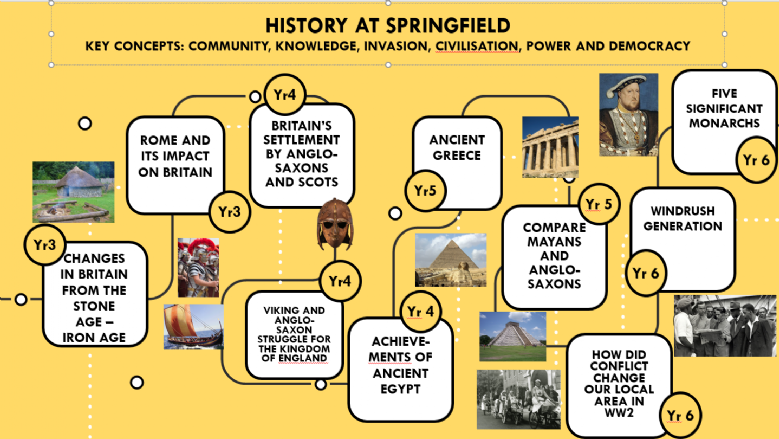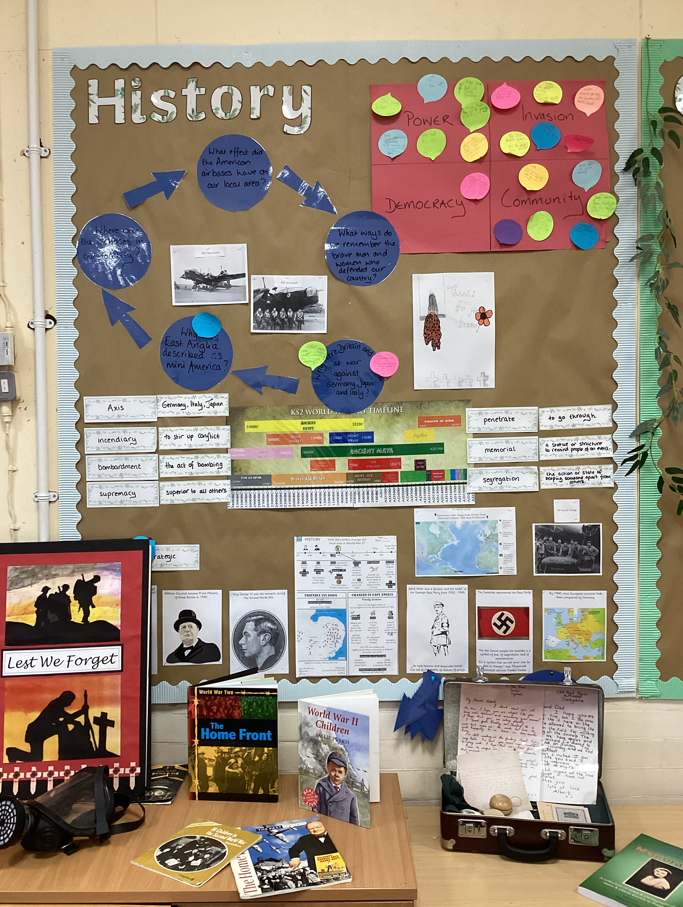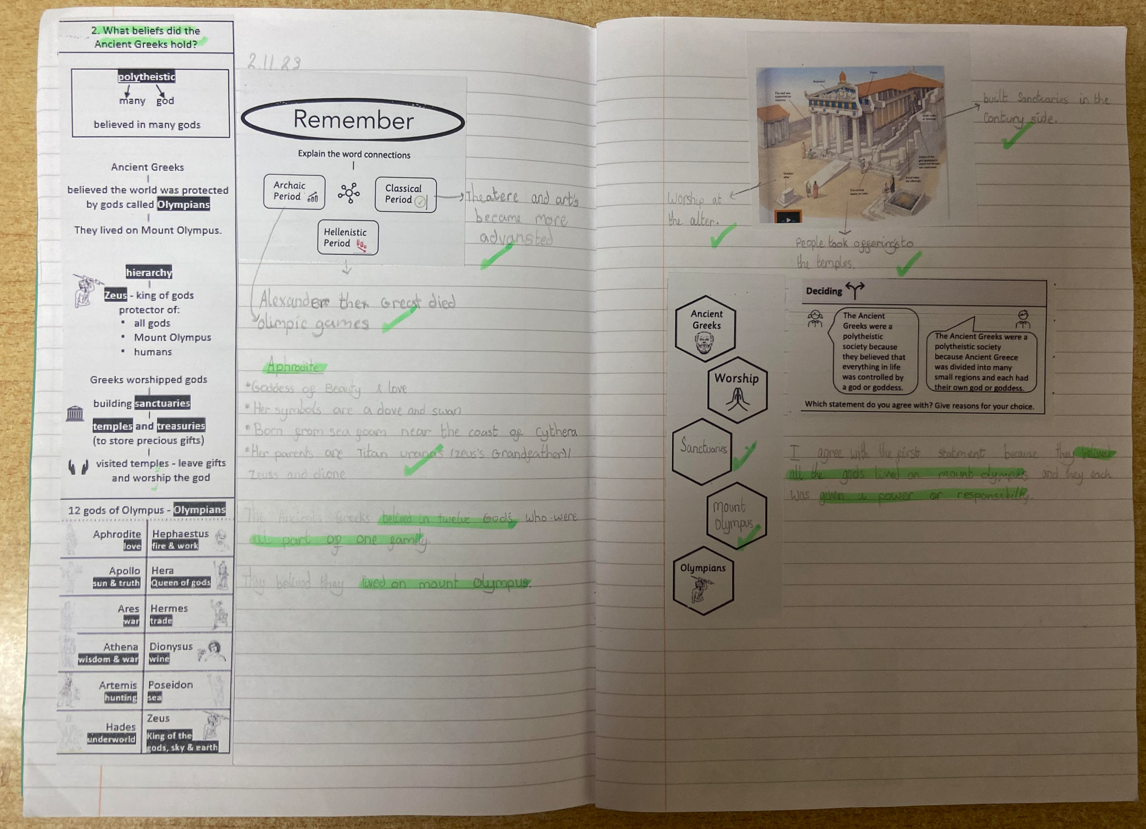HISTORY
“The more you know about the past, the better you are for the future” - Theodore Roosevelt

What is our aim with History at Springfield?
At Springfield, our aim is to develop children’s sense of historical awareness and to understand how the past has shaped the world around them today. We want them to be able to question history and question different perspectives, building their own understanding of events both locally and around the world.
What does this look like in our classrooms?
We follow the CUSP History curriculum which incorporates a range of units that revisit and build on key concepts, events, people and places. We draw upon prior learning, allowing children to make connections within and throughout periods of time studied.
This is made up of:
*Substantive knowledge (the big ideas in History) made up of Community, Invasion, Knowledge, Civilisation, Power and Democracy
*Disciplinary knowledge (working like a historian) made up of Chronology, Cause and Consequence, Change, Similarities and Difference, Evidence, Significance
*Vocabulary that is explicitly taught
Within History sessions, we aim to support pupils by:
* Promoting pupil voice and encouraging children to be curious learners who are inquisitive and use their historical knowledge to ask questions about the past and present
*Providing a diverse curriculum from The Stone Age to The Windrush Generation
*Using a range of creative and active learning techniques such as food tasting and drama to immerse and engage all children in the experiences and cultures of the past
*Applying their historical knowledge by using a range of skills such as observing artefacts, interpreting primary sources and comparing time periods
*Building aspiration through creating opportunities for children to have wider experiences, such as visiting Wattisham Airfield, Ancient Greek day and Stone Age experience day
In line with all other areas of the curriculum, within History we strive to meet the needs of all pupils and ensure pupils have the right to progress and reach their potential.
Impact
We measure the success of our curriculum by assessing how well the children have met the intended outcomes through formative assessment and through structured pupil book studies, sitting alongside the children and asking them about their learning. We track their progress using an assessment system called Insight to analyse and address any gaps in the children’s learning and to inform regular curriculum reviews and action plans.
By the time children leave our school, they will be:
-Empathetic community members who thoughtfully engage with others and understand how historical events have impacted people and communities in the present world
-Lifelong learners equipped with the necessary historical knowledge needed to explore and follow their own interests
-Global citizens with an appreciation that the world has rich and diverse cultures, histories and perspectives
Year 6 working wall to support learners

Year 5 example of a double page spread to present their learning

